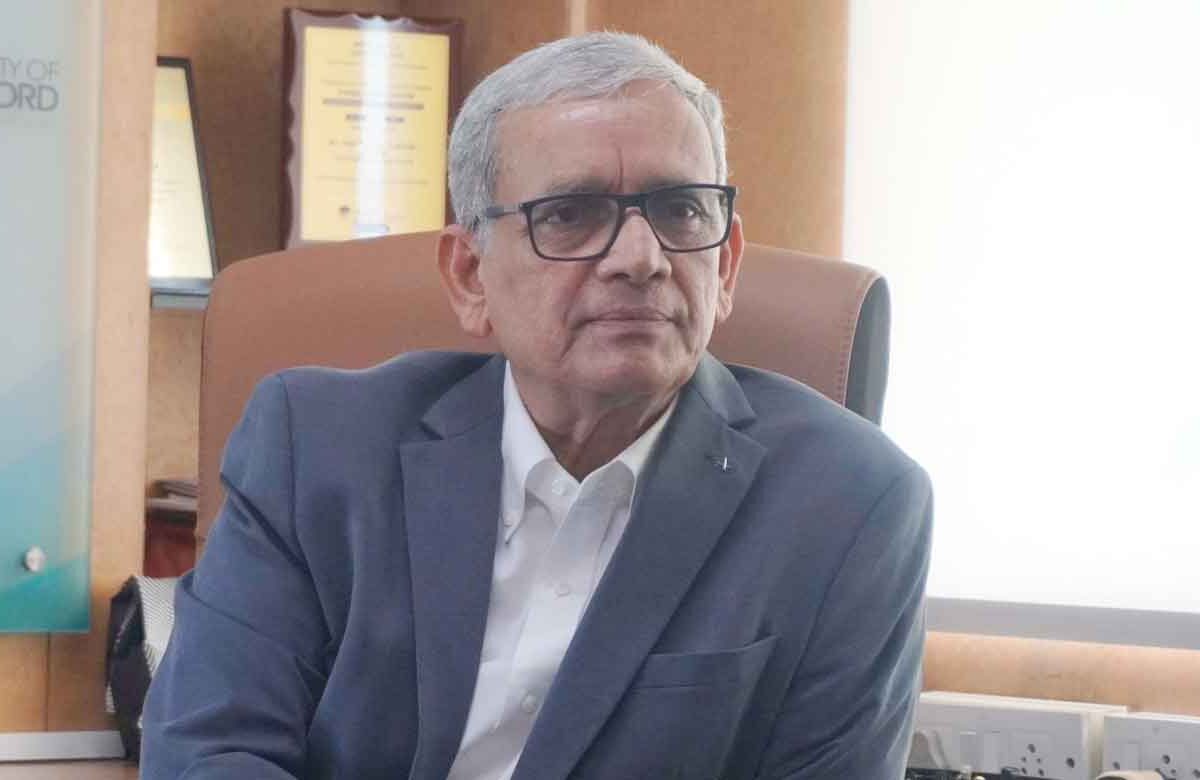EThames Chairman Calls for Urgent Action on India’s Employability Crisis: “Employability is the New Literacy”
Speaking to the media in Hyderabad, Mr. Gadiraju, a former EY Partner with over four decades of global consulting experience, emphasized, “AI is replacing jobs. But are our graduates even ready for the jobs that exist?”

Hyderabad: As India pursues its $5 trillion economic dream, a grim reality threatens to derail progress—48% of Indian graduates are unemployable, according to the India Skills Report. Despite producing over one crore graduates annually, companies continue to struggle in finding job-ready candidates. This growing gap between degrees and employability is not just an economic issue—it is a national emergency, says Kali Prasad Gadiraju, Chairman of EThames Business School.
Speaking to the media in Hyderabad, Mr. Gadiraju, a former EY Partner with over four decades of global consulting experience, emphasized, “AI is replacing jobs. But are our graduates even ready for the jobs that exist?”
He added, “The era of degree-based hiring is over. Skill-based hiring is the new norm. Employability is the new literacy. The ability to contribute meaningfully in the workplace is as essential today as reading and writing.”
Despite India producing 1 crore graduates each year:
- Only 15 lakh are from engineering and medical backgrounds.
- 85 lakh hold general degrees.
- Merely 15 lakh pursue higher education.
- Just 10 lakh find employment with MNCs or large corporations.
- The remaining 60 lakh are underemployed or earning as little as ₹15,000 per month.
“This is the real challenge. We are producing degrees, not professionals,” said Mr. Gadiraju.
He warned that India’s skill crisis could become its next social bomb. With over 65% of the population under 35, India holds a demographic advantage—but without relevant skills, this dividend risks becoming a liability. Rising frustration, underemployment, and lost productivity could severely impact national growth.
A Global Perspective
Mr. Gadiraju highlighted successful international models from Germany, South Korea, and Vietnam—countries that have aligned education with industry through dual-education models and practical training. “India needs to urgently adopt these approaches,” he emphasized.
EThames: Bridging the Gap
EThames Business School is taking decisive steps to address the employability gap. Key initiatives include:
- Industry-integrated curriculum co-developed with corporate leaders
- Mandatory internships from Year 1
- Weekly masterclasses with CEOs and startup founders
- AI-readiness programs and international certifications
The institution has also pioneered short-term skill programs (1.5 to 2 months) in fields like Hospitality Operations Management and Anti-Financial Crime, designed to turn underemployed graduates into job-ready professionals with higher incomes.
EThames’ BPL Meritorious Training Model offers sector-specific training to high-potential, low-income B.Com students, entirely free for students and funded by employers. Training covers sectors like hospitality, IT, and BFSI with upcoming modules in AML and KYC.
“Every student has the potential of an Elon Musk or a Dhirubhai Ambani,” said Mr. Gadiraju. “It’s the job of the education system to unlock it.”
Thanks to partnerships with globally reputed institutions, EThames reports an 85% placement rate—even among average academic performers.
Policy Recommendations
Mr. Gadiraju proposed several urgent reforms:
- Shift from UGC-centric compliance to outcome-based learning.
- Prioritize and fund skill-first institutions over infrastructure-heavy ones.
- Mandate and credit internships across higher education.
- Introduce a National Employability Audit for all colleges and universities.
- Offer tax incentives to companies that invest in upskilling students.
“India cannot afford to wait,” he stressed. “Every unemployable graduate is a lost opportunity. Employability is the new literacy—and India must act like it.”
